 NEW: BrowserGrow.com is now available!
AI agents to grow your business & do your marketing on autopilot in your browser
NEW: BrowserGrow.com is now available!
AI agents to grow your business & do your marketing on autopilot in your browser

 NEW: BrowserGrow.com is now available!
AI agents to grow your business & do your marketing on autopilot in your browser
NEW: BrowserGrow.com is now available!
AI agents to grow your business & do your marketing on autopilot in your browser


Outreach has always been at the heart of B2B growth, but the way it’s executed in 2025 looks very different from just a few years ago. Gone are the days of mass cold emails and generic LinkedIn messages. Decision-makers are inundated with sales requests, and only the most relevant, personalized outreach cuts through the noise.
This shift has elevated the role of outreach agencies. Companies now partner with specialized agencies not only to save time but also to leverage advanced technology, deep expertise, and proven processes that would be costly to build in-house. As AI, automation, and compliance standards evolve, the best outreach agencies in 2025 are those that combine technology with human creativity to deliver measurable results.
Whether you are a SaaS company looking to scale your pipeline, a professional services firm seeking steady deal flow, or an enterprise exploring new markets, choosing the right outreach partner is critical. In this article, we review the top outreach agencies in 2025 and the trends shaping the industry.
Before diving into the list, it’s important to understand the qualities that separate leading agencies from average ones.
Technology Adoption
The best agencies use AI-powered tools for data enrichment, personalization, and workflow automation. This ensures campaigns are not just efficient but also contextually relevant.
Multi-Channel Expertise
Relying on one platform is risky. Successful agencies blend email, LinkedIn, phone, and sometimes even direct mail to maximize touchpoints and conversion.
ICP-Driven Strategy
Outreach that works in 2025 starts with a crystal-clear definition of the Ideal Customer Profile. Agencies that build campaigns around ICPs consistently deliver higher ROI.
Transparency and Reporting
With budgets under scrutiny, clients need visibility. The best agencies provide clear dashboards, KPIs, and ROI metrics.
Balance of Human and AI
Automation accelerates processes, but human creativity drives authentic conversations. Top agencies strike this balance rather than over-relying on one side.


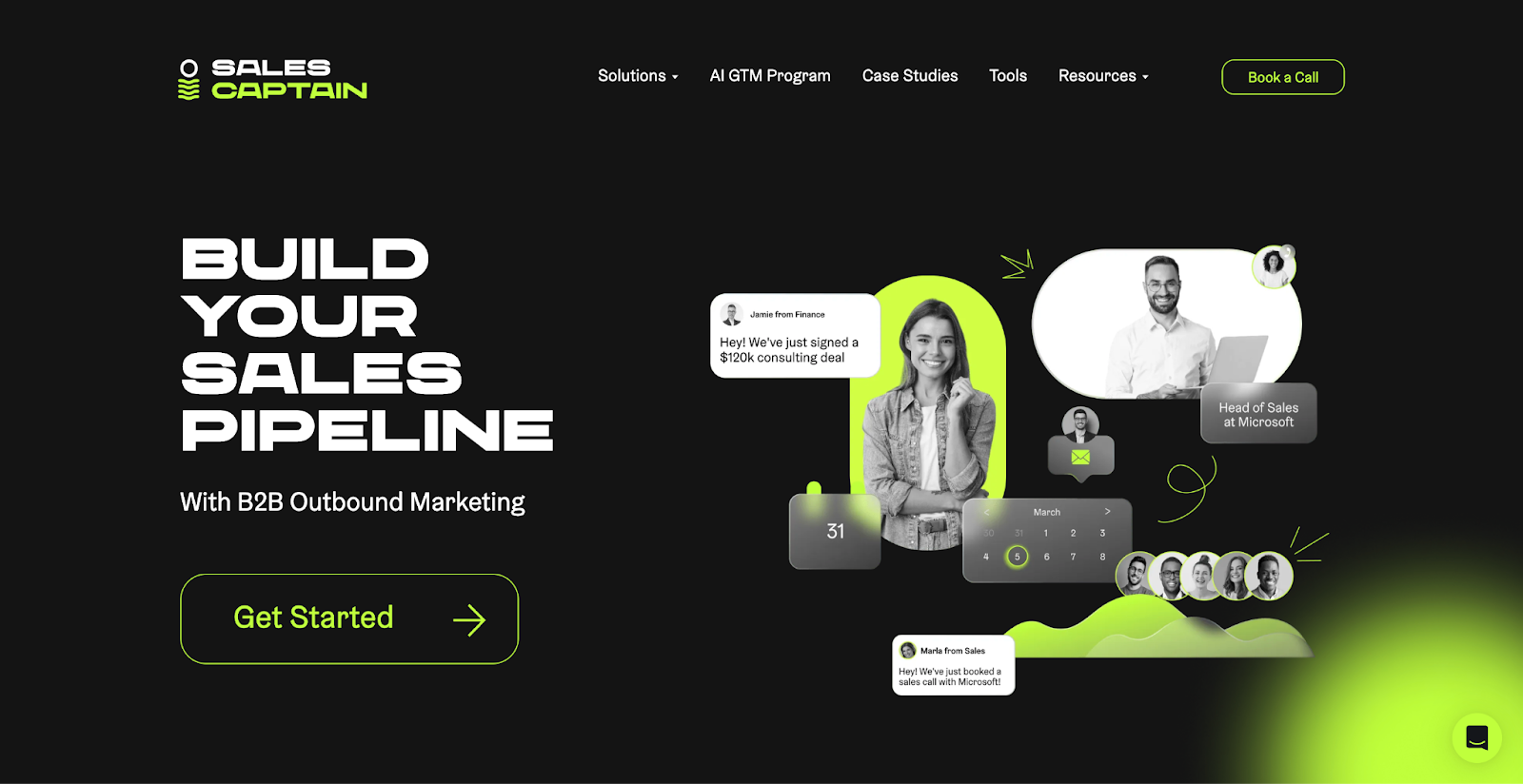
Overview: SalesCaptain is an outreach agency that integrates AI-driven tools with multi-channel sales execution. The agency works with B2B companies to design outbound strategies that blend automation with human oversight. Unlike many firms that focus on volume, SalesCaptain emphasizes quality conversations and measurable ROI.
Key Strengths:
AI-powered prospect research and personalization at scale
Multi-channel execution across email, LinkedIn, and CRM-integrated workflows
Transparent reporting with clear performance metrics
Programmatic SEO expertise that supports long-term lead generation
Best For: B2B organizations that want to scale outreach efficiently while maintaining personalization and data-driven decision-making.
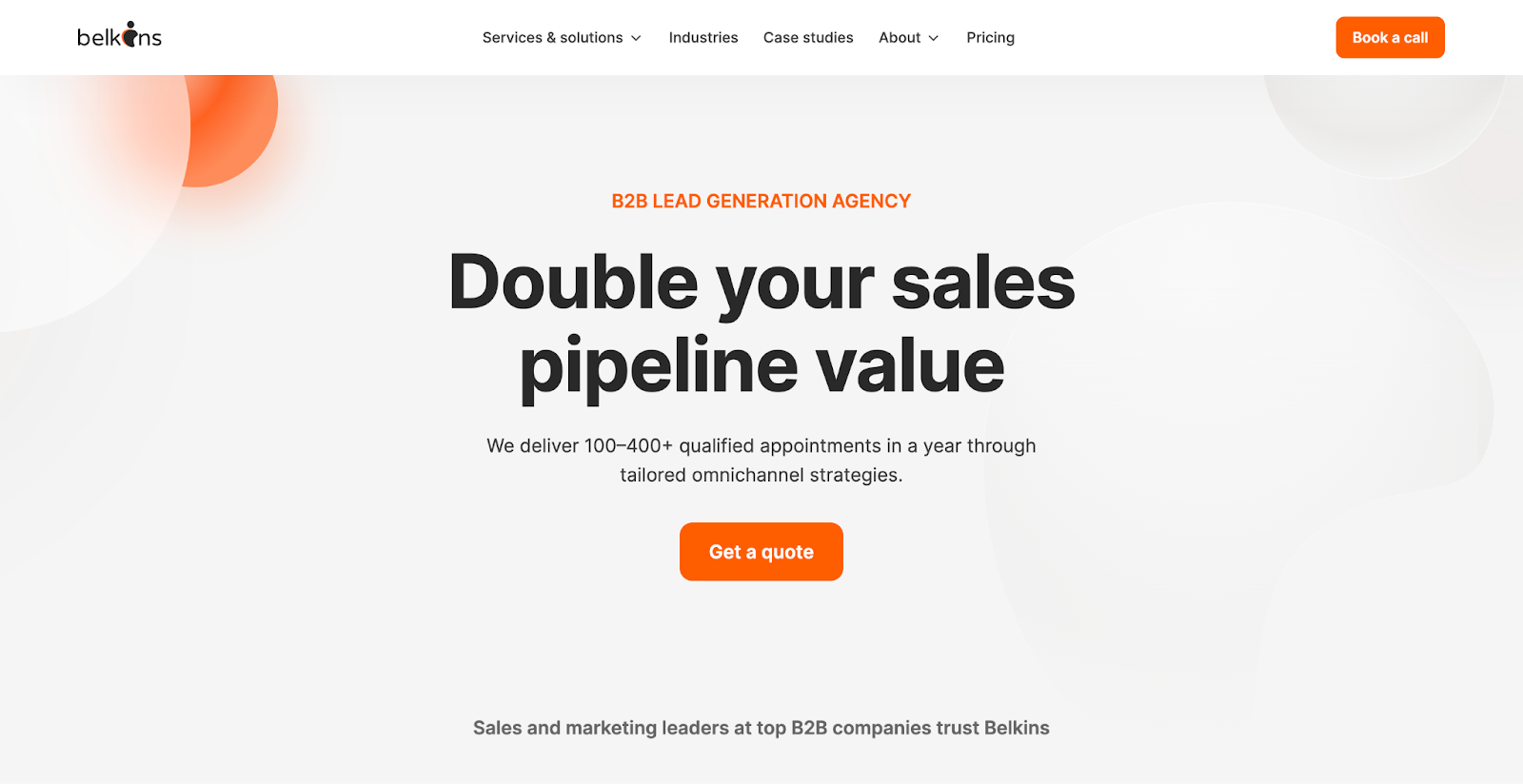
Overview: Belkins is a long-established player in B2B appointment setting. Being one of the best cold email agencies, they manage the full outreach cycle, from lead research to scheduled meetings, with a reputation for reliability.
Key Strengths:
Proven, process-driven approach
Broad global client base
Scalable appointment-setting systems
Best For: Enterprises and mid-market firms needing consistent, large-scale outreach support.
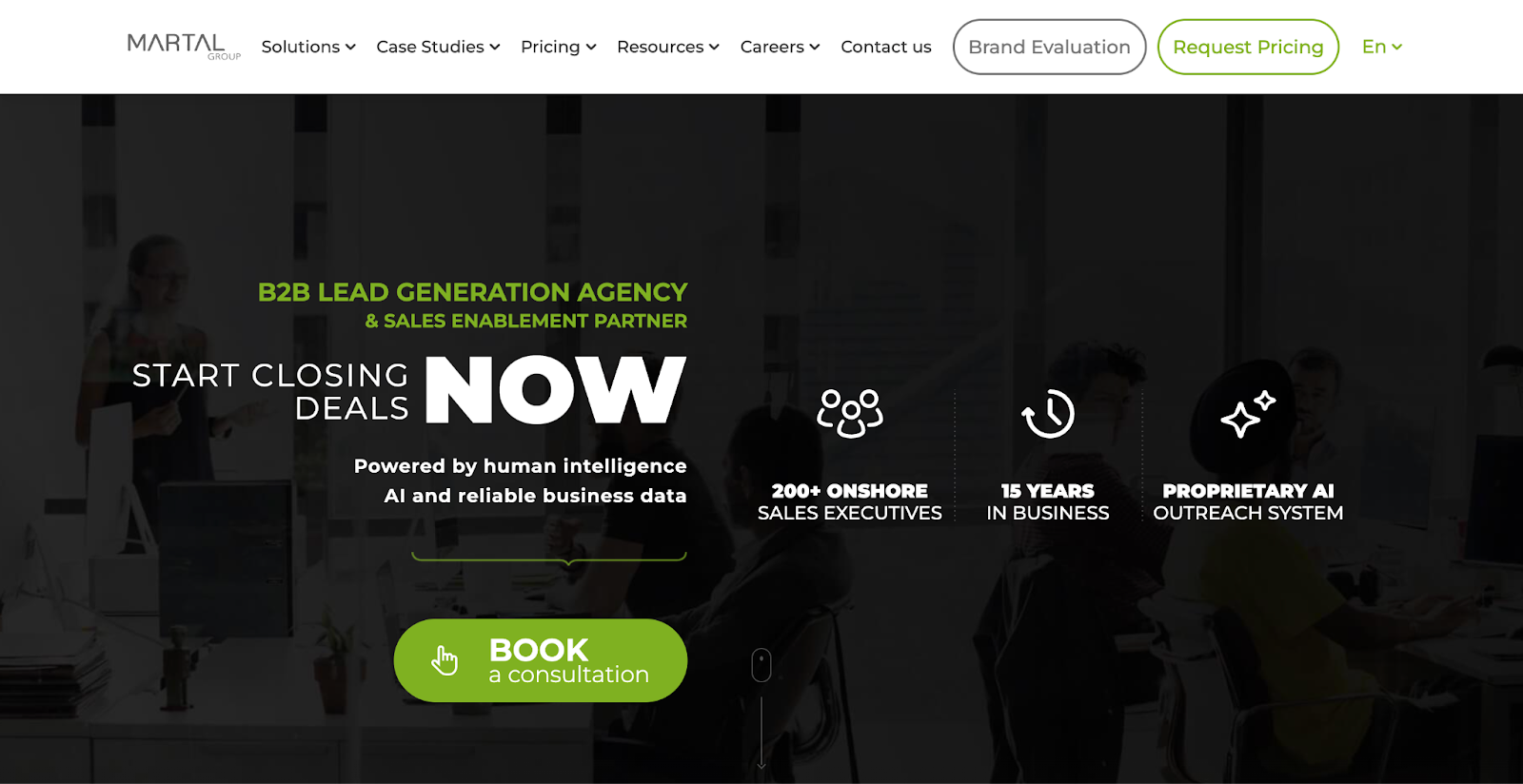
Overview: Martal Group combines outsourced SDRs with modern automation, making it especially effective for fast-moving SaaS companies.
Key Strengths:
Quick market-entry support
Campaigns aligned with Ideal Customer Profiles (ICPs)
Flexible outsourced SDR model
Best For: SaaS firms expanding into new regions without building in-house teams.
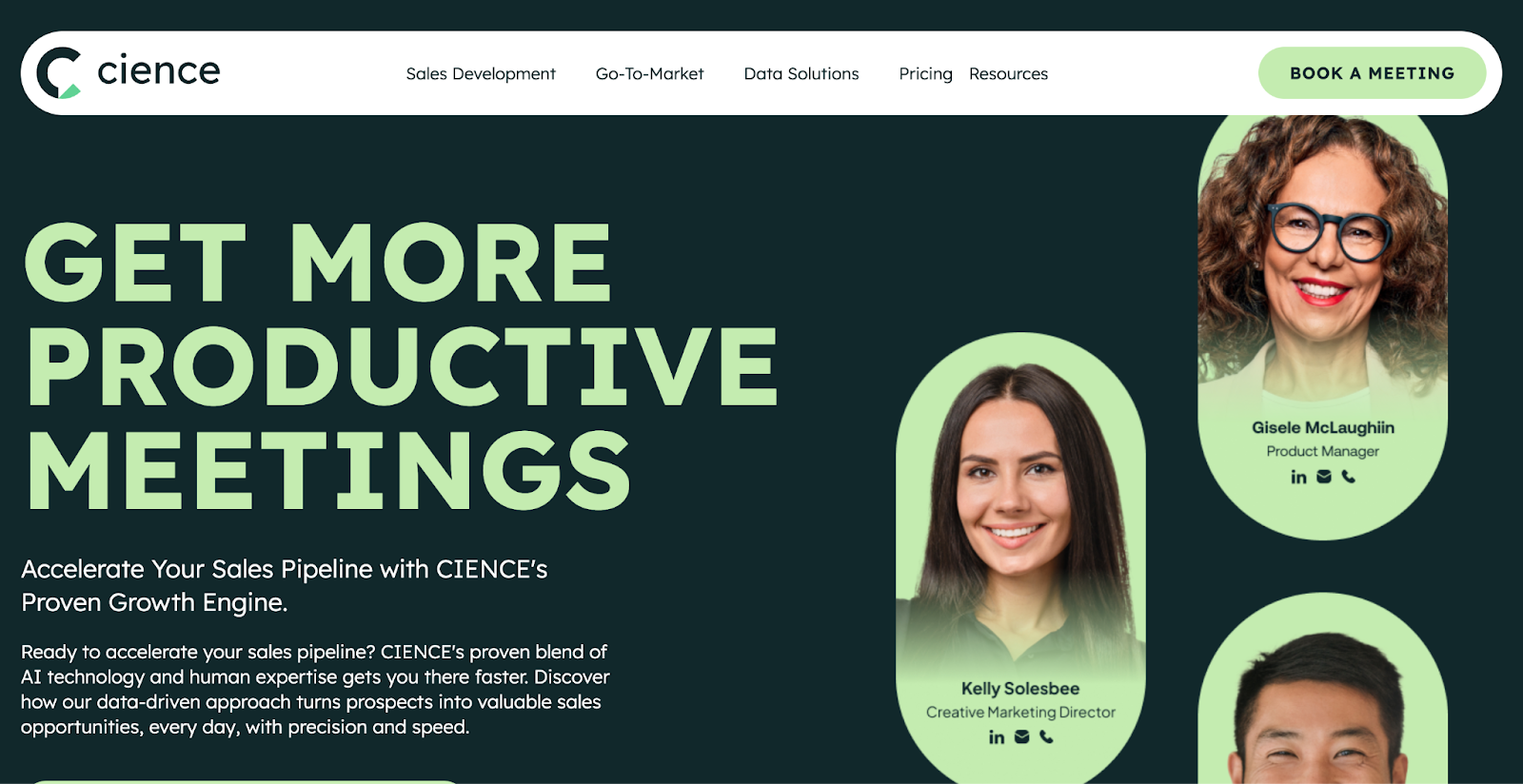
Overview: CIENCE positions itself as a “People-as-a-Service” solution, merging deep data research with structured outbound campaigns.
Key Strengths:
High-quality data targeting
Predictable campaign frameworks
Cross-industry expertise
Best For: Companies seeking structured, research-driven outreach programs.
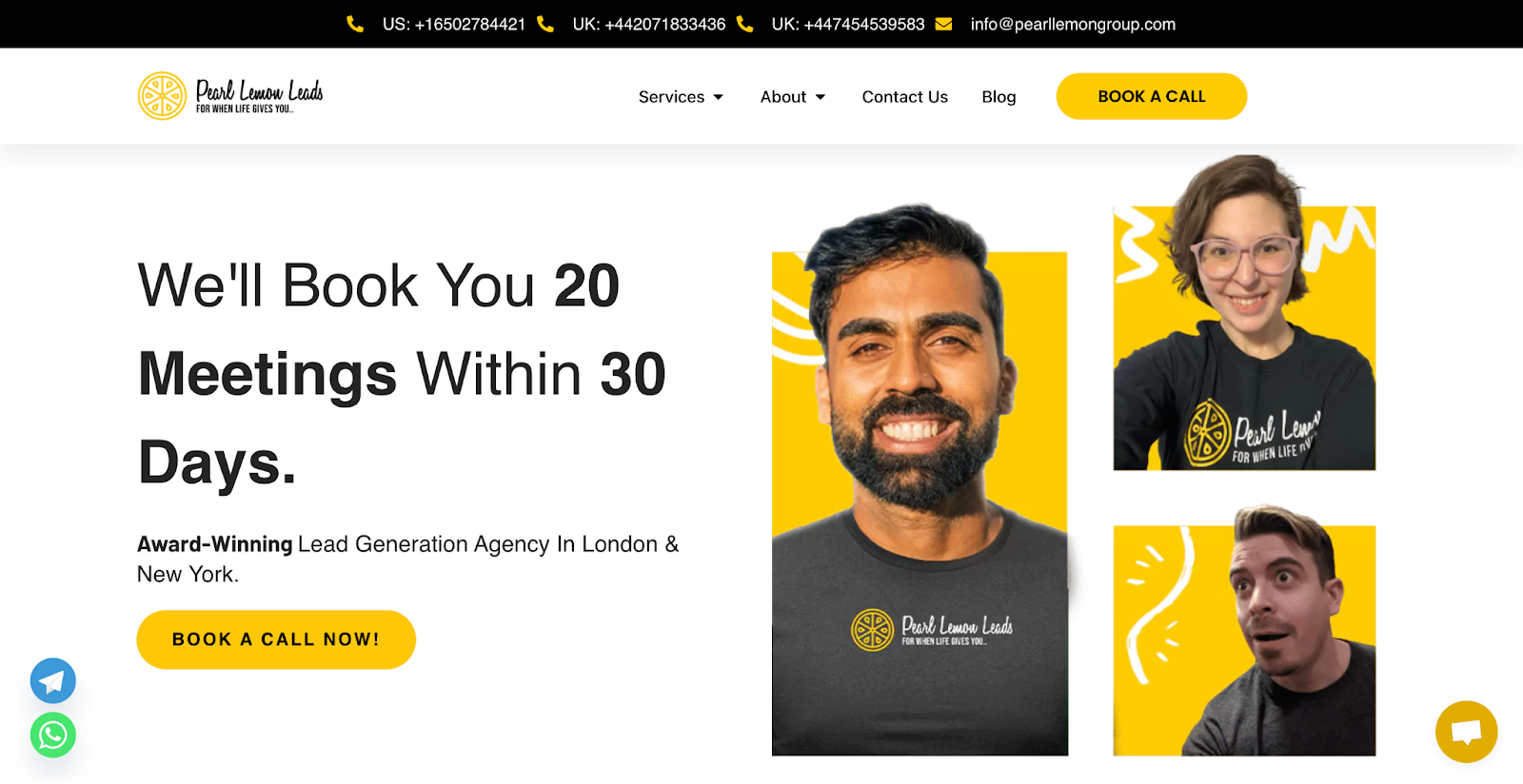
Overview: Pearl Lemon Leads provides flexible lead generation, offering both managed outreach and consulting services for in-house teams.
Key Strengths:
Multi-channel strategies, including SEO and outreach
Adaptable packages for various budgets
Experience with SMEs and startups
Best For: Small to mid-sized businesses needing a versatile approach.
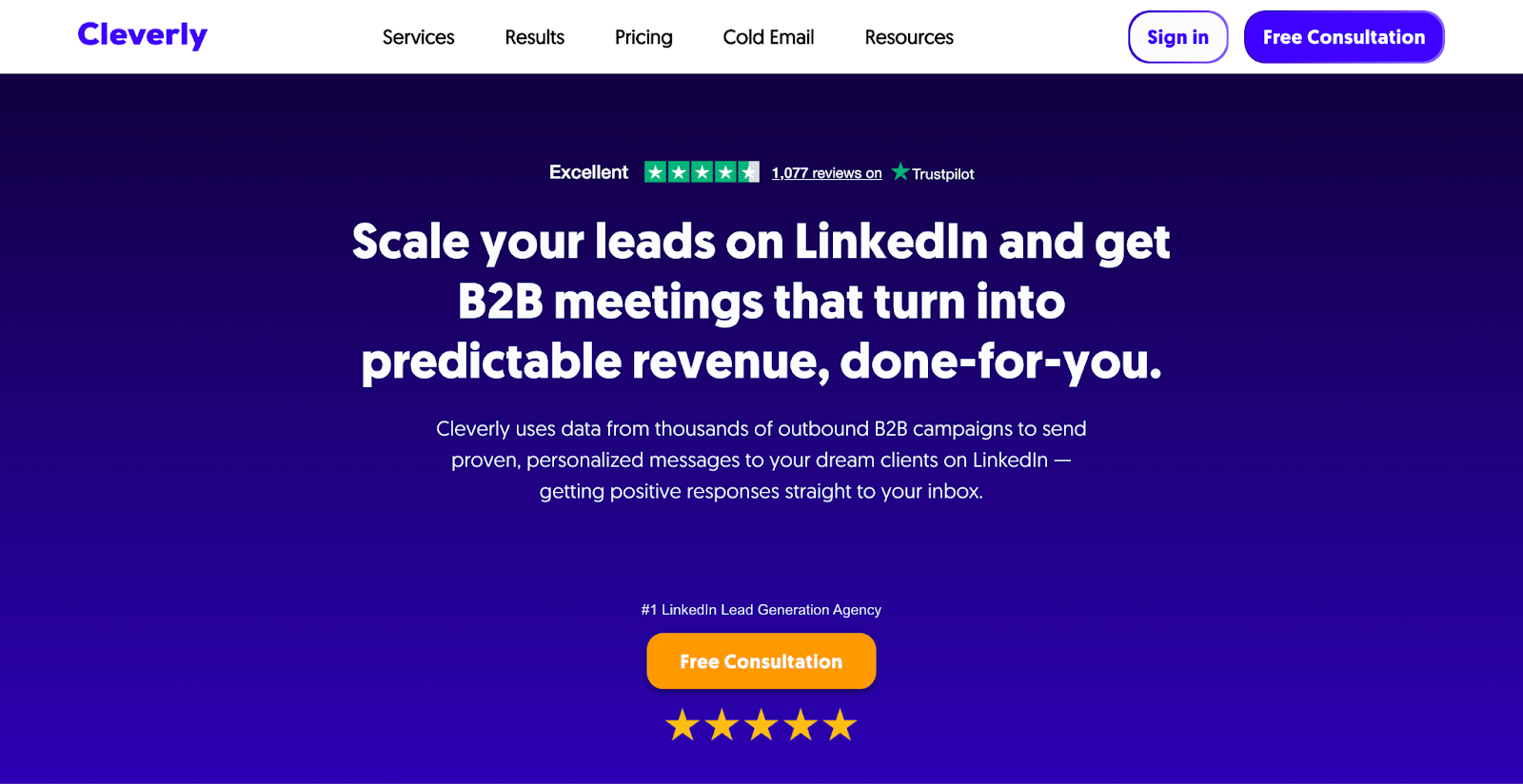
Overview: Cleverly focuses exclusively on LinkedIn as an outreach channel, optimizing profiles and delivering targeted campaigns.
Key Strengths:
LinkedIn-specific expertise
Precision targeting and consistent messaging
Profile optimization services
Best For: Companies that prioritize LinkedIn as their main channel for B2B outreach.
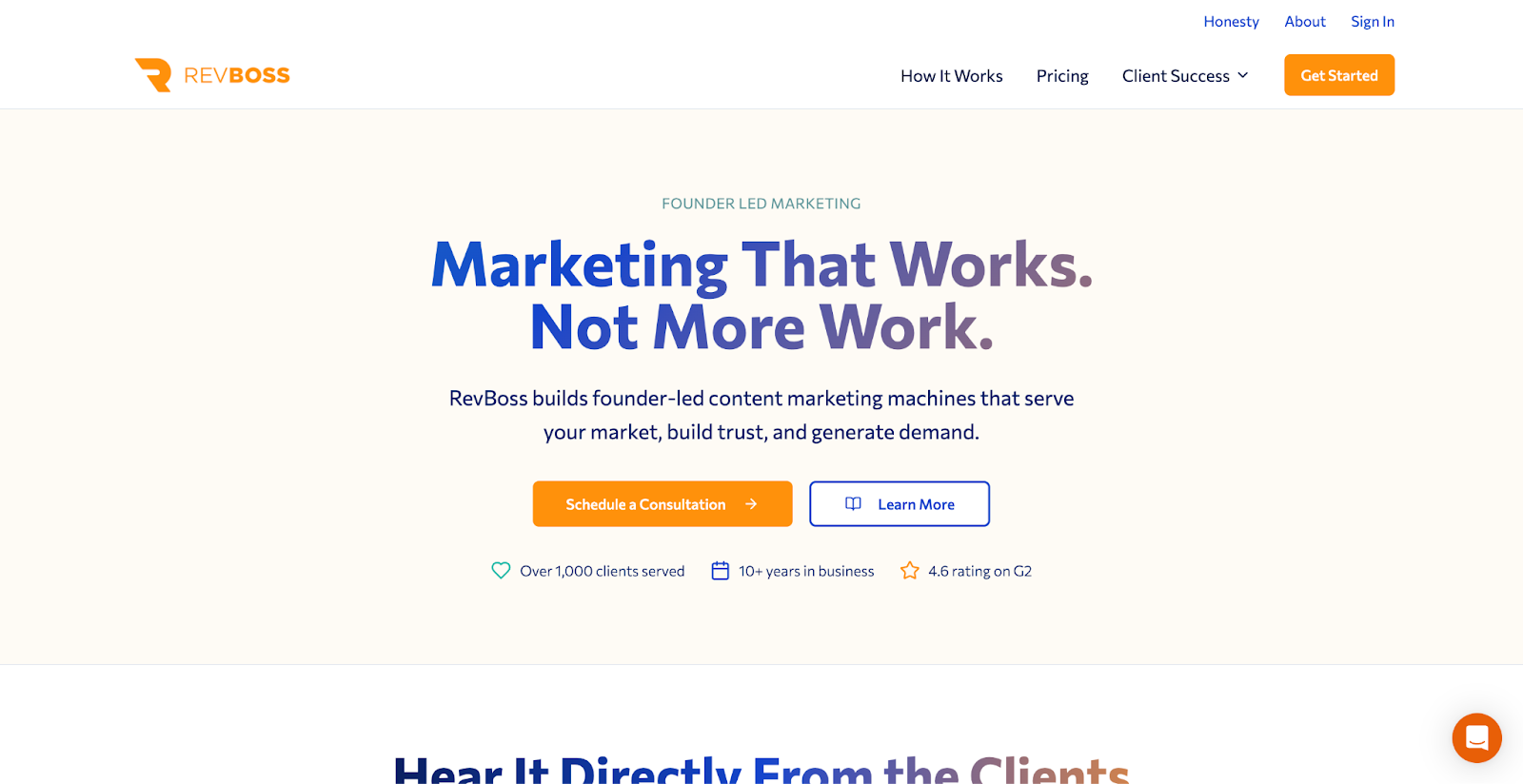
Overview: RevBoss builds predictable outreach systems and emphasizes transparency through detailed reporting.
Key Strengths:
Clear KPIs and performance dashboards
Expertise across SaaS and professional services
Repeatable, structured outreach processes
Best For: Organizations that want accountability and clarity in campaign results.
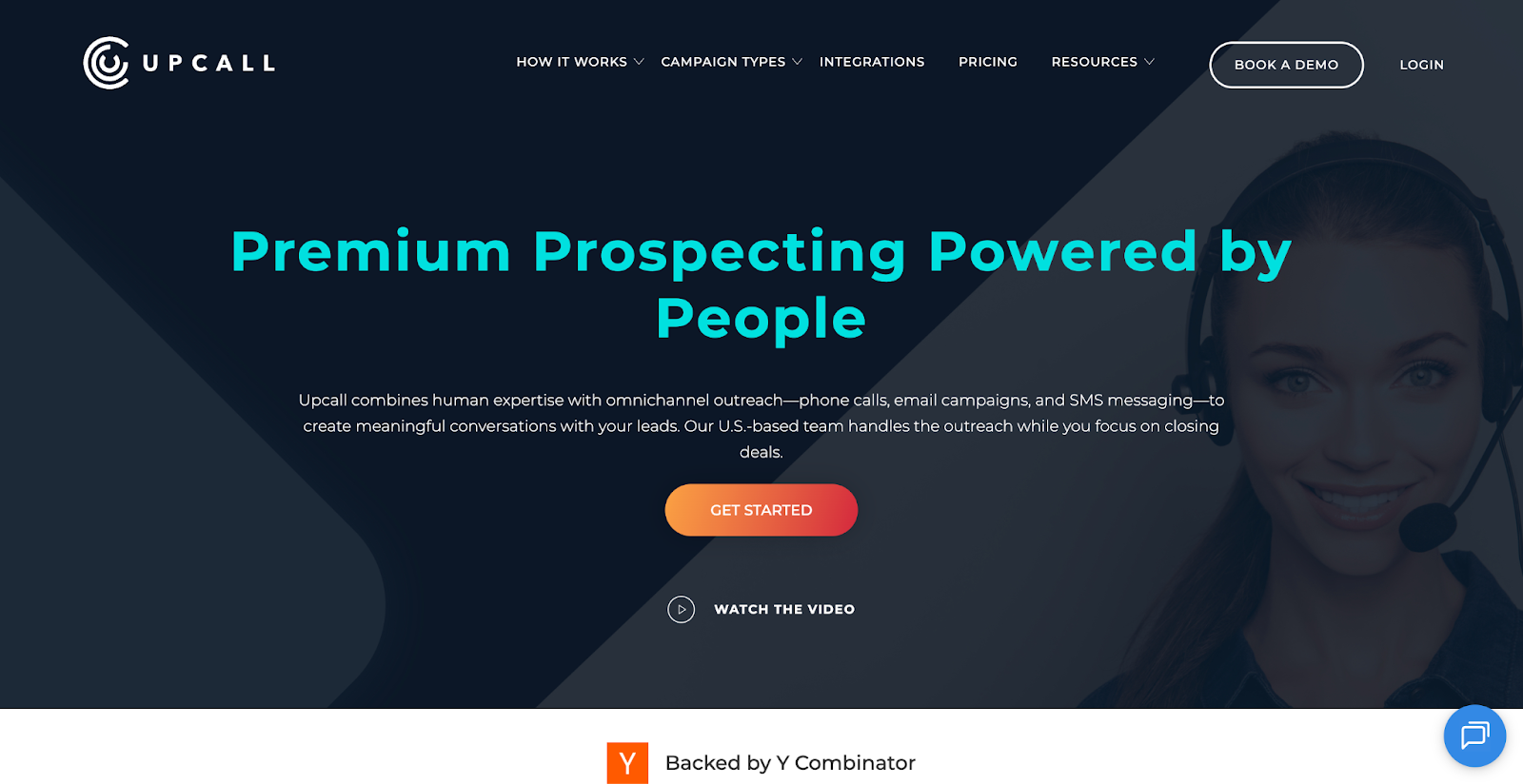
Overview: Upcall blends human phone outreach with automation, standing out in industries where live conversations remain effective.
Key Strengths:
Call-based outreach led by humans
Strong fit for service-driven industries
Modern integrations with automation tools
Best For: Real estate, services, and B2B firms where phone outreach is still a key driver.
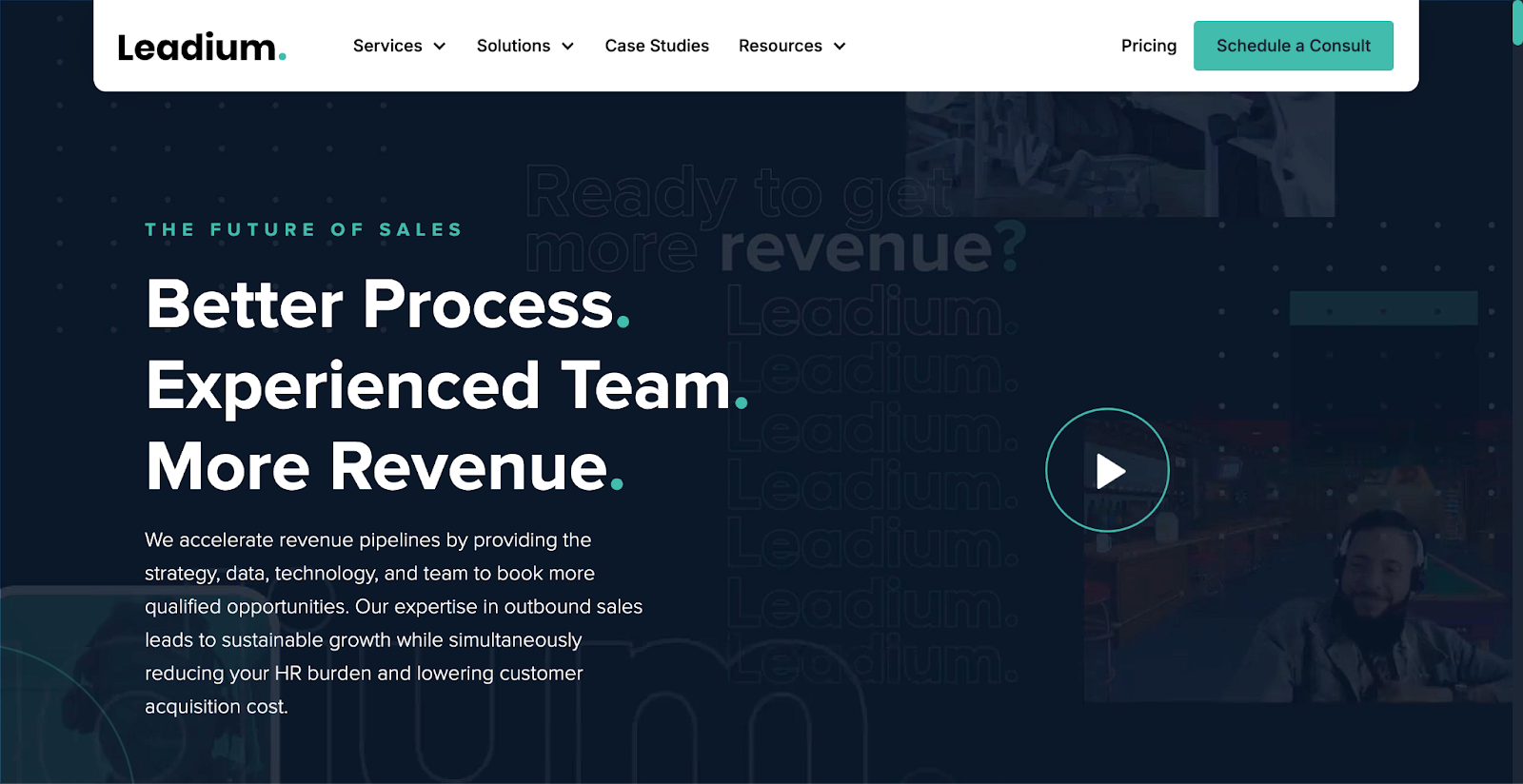
Overview: Leadium provides global lead generation support, from research and list building to outbound execution.
Key Strengths:
Worldwide delivery teams
Flexible pricing tiers for startups and enterprises
Custom-targeting strategies for niche markets
Best For: Businesses with highly specific ICPs or international expansion goals.
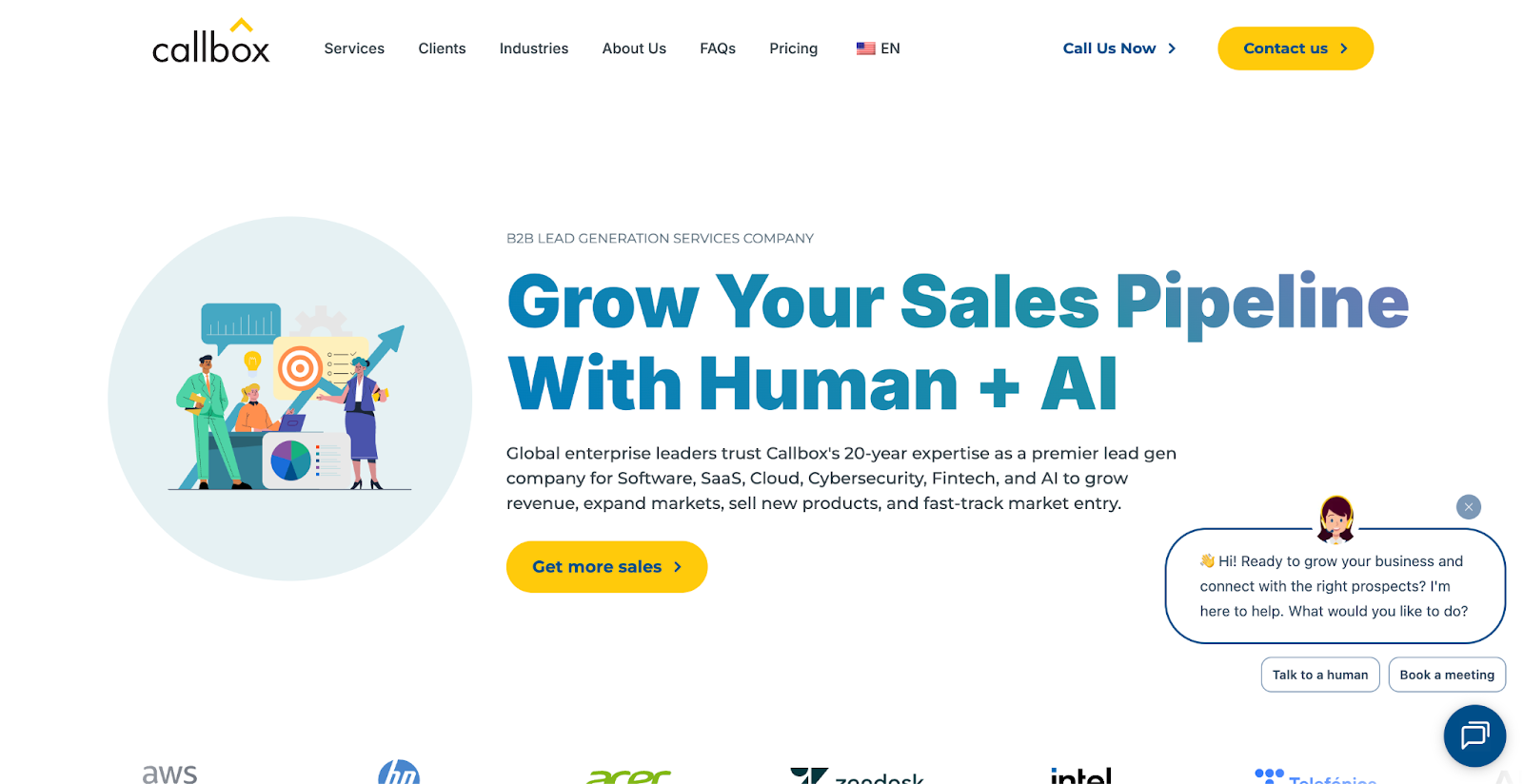
Overview: Callbox is one of the longest-running agencies, specializing in large-scale, multi-channel campaigns.
Key Strengths:
Global reach across North America and APAC
Multi-channel approach (email, phone, LinkedIn)
Decades of experience in lead generation
Best For: Large enterprises seeking scale and global market coverage.
The outreach landscape in 2025 looks very different from even a few years ago. Buyer expectations, compliance rules, and the rise of AI have pushed agencies to reinvent how they design and execute campaigns. Below are the key trends defining the space this year.
Artificial intelligence has moved from a “nice-to-have” to the backbone of modern outreach. Agencies use AI for:
Data enrichment: pulling real-time firmographic and technographic data.
Message generation: drafting outreach tailored to role, industry, or recent activity.
Timing optimization: analyzing engagement history to determine when prospects are most likely to respond.
The agencies leading the pack in 2025 are those that deploy AI responsibly. They avoid the trap of letting automation churn out generic copy and instead use AI as an amplifier for human-led strategy. For example, a prospect might receive an AI-personalized email referencing a new funding round, but the strategy behind why that prospect was targeted remains human-driven.
“Spray and pray” outreach is becoming obsolete. Buyers ignore generic emails, but they respond to messages that clearly show awareness of their situation. Agencies now build campaigns around buying signals such as:
Recent funding announcements
Key leadership hires
Product launches or new market entries
Website technology changes
This signal-based model makes outreach more relevant and significantly improves conversion rates. For instance, a SaaS vendor targeting e-commerce firms may launch campaigns triggered specifically when a prospect starts hiring a Digital Marketing Agency or building out internal digital marketing roles. Outreach becomes less about guessing and more about striking while the prospect is already in motion.
Email is still effective, but inbox competition has never been higher. The best agencies now orchestrate multi-channel outreach, where prospects see consistent, sequenced touches across:
Email: still the backbone of B2B communication.
LinkedIn: increasingly important for credibility and direct engagement.
Phone calls: still effective in industries like services, real estate, or enterprise B2B.
Direct mail: making a surprising comeback for high-value accounts.
This layered approach doesn’t overwhelm prospects but instead reinforces the message through different media, improving recall and response rates.
Regulations and platform rules are tightening. Agencies that ignore compliance risk are burning client domains and reputations. Leading firms invest heavily in:
Email warmup and reputation management tools.
Validated data to minimize bounce rates.
GDPR, CCPA, and regional compliance training for teams.
Ethical outreach practices, ensuring volume does not compromise trust.
In 2025, choosing an agency that prioritizes compliance isn’t optional; it’s essential for sustainable outbound growth.
Outreach used to be siloed, often disconnected from broader sales and marketing efforts. Today, the most effective agencies integrate directly with clients’ Revenue Operations (RevOps) stack. This means:
Campaigns are synced into the CRM, giving sales teams visibility.
Outreach metrics (open, reply, meeting booked) are tied to pipeline and revenue impact.
Insights flow both ways, agencies learn from sales feedback, and sales learns from prospect data.
This integration ensures outreach doesn’t just produce “activity” but generates opportunities that sales teams can act on immediately.
With so many agencies offering outreach services, the challenge for businesses isn’t just finding options; it’s identifying the right fit. Below are the key factors to consider when evaluating potential partners.
Not every agency is built for the same outcomes. Some specialize in top-of-funnel lead generation, while others are focused on appointment setting or pipeline acceleration. Start by asking:
Do we need more meetings, or higher-quality ones?
Are we expanding into new markets, or deepening reach in existing ones?
Should the agency act as an outsourced SDR team or a strategic partner?
Having clarity on objectives makes it easier to filter agencies and avoid mismatched expectations.
Outreach strategies that work for SaaS may fail in professional services or healthcare. Agencies with domain-specific experience understand industry nuances like deal cycles, compliance requirements, and prospect behavior. This knowledge can significantly improve campaign effectiveness.
Many agencies highlight email open rates or connection requests. While useful, these don’t always translate to business impact. Instead, focus on:
Meetings booked with ICP-aligned prospects
Opportunities created and pipeline value
Conversion rates from outreach to closed deals
Agencies that report on these revenue-linked metrics are better aligned with long-term business goals.
In 2025, outreach is as much about systems as it is about messaging. Ask agencies about:
The tools they use for data enrichment, personalization, and sequencing
How they handle compliance and deliverability
The transparency of their reporting dashboards
A modern agency should show how its process integrates with your existing RevOps stack, ensuring smooth collaboration with internal teams.
Outreach budgets vary widely, and so do agency pricing models. Some agencies operate on monthly retainers, others on performance-based fees, and some offer hybrid models. Look for pricing that reflects your growth stage and risk tolerance. Startups may prefer flexible packages, while enterprises might prioritize stability and scalability.
The best outreach agencies act as an extension of your team. They provide regular updates, transparent reporting, and clear feedback loops. If an agency is vague about methods or unwilling to share results, that’s a red flag.


Outreach in 2025 is more complex, but also more powerful than ever. Buyers are harder to reach, regulations are stricter, and inboxes are noisier. At the same time, advances in AI, signal-based targeting, and multi-channel campaigns have made it possible to build outreach systems that are both scalable and highly personalized.
This is where outreach agencies play a critical role. They bring the expertise, tools, and processes that most businesses can’t replicate in-house without significant cost and effort. The best agencies go beyond sending messages; they align outreach with revenue goals, integrate with RevOps, and provide transparency every step of the way.
When choosing a partner, companies should focus on fit: the agency’s experience in their industry, the clarity of reporting, and the ability to balance automation with human creativity. Whether you are a startup seeking your first wave of customers or an enterprise scaling into new markets, the right outreach agency can turn outbound into a predictable and sustainable growth engine.